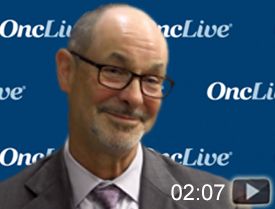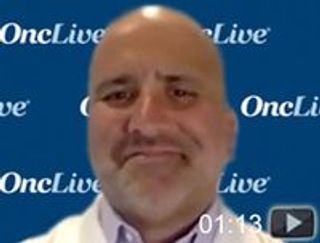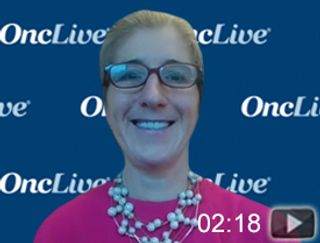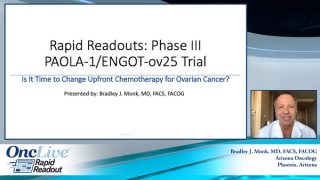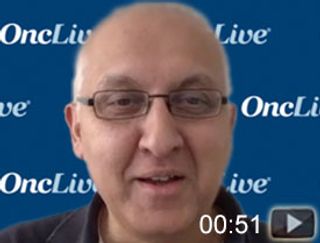
Ovarian Cancer
Latest News
Latest Videos

CME Content
More News

Sarah Crafton, MD, gynecologic oncologist, Allegheny Health Network, discusses optimizing treatment selection in recurrent ovarian cancer.
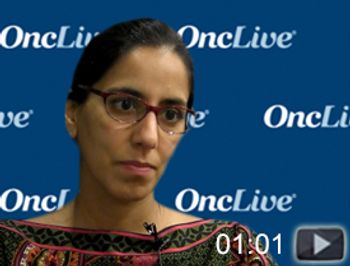
Ritu Salani, MD, discusses considerations for neoadjuvant chemotherapy versus primary debulking surgery in advanced ovarian cancer.

John Hays, MD, PhD, discusses ongoing research with immunotherapy in ovarian cancer, challenges with determining predictive biomarkers of response, and promising emerging modalities.

Larry J. Copeland, MD, discusses how therapy for patients with ovarian cancer has evolved in recent years.
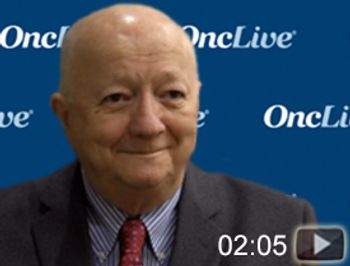
Larry J. Copeland, MD, discusses the etiology of ovarian cancer.

Ritu Salani, MD, discusses the evolution of up-front chemotherapy, as well as the roles of primary debulking surgery and neoadjuvant chemotherapy in ovarian cancer.

David O’Malley, MD, discusses clinical trials in ovarian cancer and others under investigation.

Leigha Senter, MS, LGC, discusses the current state of genetic testing for patients with ovarian cancer.

Secondary cytoreduction followed by chemotherapy was not found to improve overall survival compared with chemotherapy alone in patients with platinum-sensitive recurrent ovarian cancer.

Casey M. Cosgrove, MD, discusses factors to consider when selecting a PARP inhibitor as maintenance therapy in advanced ovarian cancer.

Leigha Senter, MS, LGC, discusses the implications of identifying genes beyond BRCA1/2 in women with ovarian cancer.

Floor J. Backes, MD, associate professor, Division of Gynecologic Oncology, The Ohio State University Comprehensive Cancer Center, discusses treatment selection with PARP inhibitors in ovarian cancer.

As PARP inhibitors have now moved into the frontline maintenance setting in ovarian cancer, researchers are now seeking to even further capitalize on use of these agents, including indications in treatment-naïve patients.
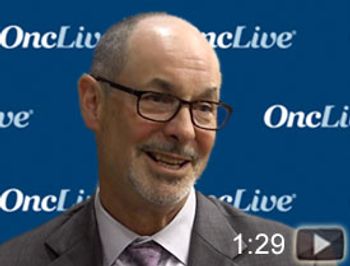
Jeffrey M. Fowler, MD, discusses factors used to determine whether a patient with advanced ovarian cancer is eligible for primary cytoreductive surgery.
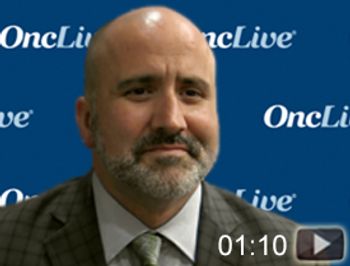
David O’Malley, MD, discusses the toxicities associated with PARP inhibitors in ovarian cancer.

OncLive interviewed experts at the State of the Science Summits™ in October 2019 on what they wish more people knew in community practice that is not yet widespread.

Updated guidelines from the United States Preventive Services Task Force on BRCA1/2 genetic testing recommend risk assessment, counseling, and genetic test-ing for women who meet certain criteria but fall short of encompassing important groups of individuals who are at risk for developing BRCA1/2 mutation–driven disease
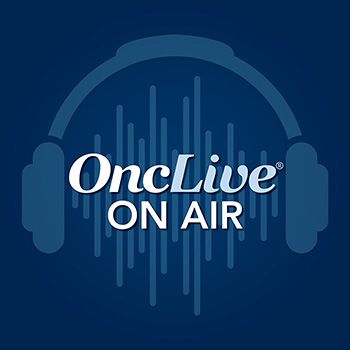
We traveled to Pittsburgh, Pennsylvania, for a State of the Science Summit™ on Ovarian Cancer, which featured insights from the University of Pittsburgh Medical Center faculty.

The FDA has approved niraparib (Zejula) for the treatment of patients with advanced ovarian, fallopian tube, or primary peritoneal cancer who have been treated with ≥3 prior chemotherapy regimens, and whose cancer is associated with homologous recombination deficiency–positive status.

Antonio Gonzalez-Martin, MD, discusses the rationale for the phase III PRIMA trial investigating niraparib (Zejula) as maintenance therapy for patients with platinum-sensitive advanced ovarian cancer.
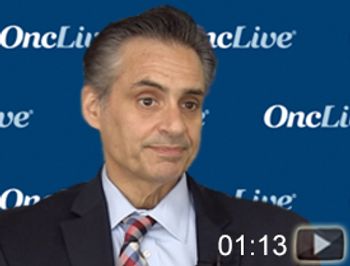
Robert L. Coleman, MD, FACOG, FACS, discusses what makes veliparib a unique agent in high-grade serous ovarian cancer.

The UK’s National Institute for Health and Care Excellence has approved rucaparib for the maintenance treatment of patients with relapsed ovarian, fallopian tube, or peritoneal cancer that has responded to platinum-based chemotherapy.
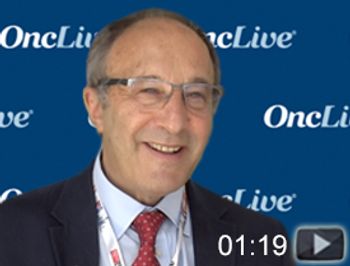
Jonathan A. Ledermann, MD, discusses the rationale for the randomized, double-blind, placebo-controlled, phase III ARIEL3 trial which explored rucaparib as maintenance therapy in women with high-grade, recurrent ovarian cancer who previously received platinum-based chemotherapy.
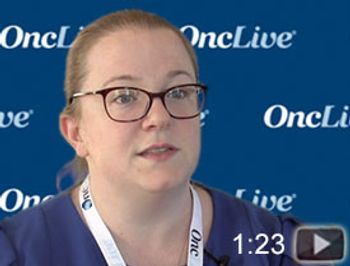
Laura L. Holman, MD, discusses screening options for ovarian cancer.

Updated results from the phase I/II MEDIOLA study strengthen the case for combining olaparib and durvalumab in patients with metastatic breast cancer and relapsed ovarian cancer with germline BRCA mutations. The updated data were featured in two separate presentations at the 2019 ESMO Congress.


